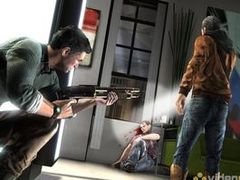Video Gamer is reader-supported. When you buy through links on our site, we may earn an affiliate commission. Prices subject to change. Learn more
Ubisoft Montreal’s Splinter Cell: Conviction hits stores on Friday, and while it’s been worth the wait, just why have gamers had to wait so long for a game originally planned for release in 2007?
Speaking to Edge, the studio’s Max Beland explained that when he joined the team the game had been in development for a few years and a big decision had to be made.
“I joined the team in January of 2008 and at the beginning the goal was to fix the things that weren’t happening. Ubisoft had identified that there were some major issues with the game,” he explained.
“We tried to make the whole fugitive direction work for about two months [but] we would have needed more time and at one point you have to decide whether you continue to iterate or do you just pull the plug and do something else.
“So after two months we had a discussion with [Ubisoft] Paris… and they asked us to propose something else.”
Beland said that after a lot of playtesting and consumer research it was decided that the stealth game was too slow and it had to be made more exciting.
“It was funny, because when you watch the movies they’re not that,” he said. “James Bond and Jason Bourne run fast, they don’t make noise, they kill one, two, three or four guys super quickly and silently with a sound suppressor, so it’s a lot more dynamic. So we needed to do something with that.”
He added that the game had to be appealing to a broader audience, and labelled the old experience as too “hardcore”.
Well, we think Ubisoft got it just right with Conviction. See what we thought of the game by checking out our review.
